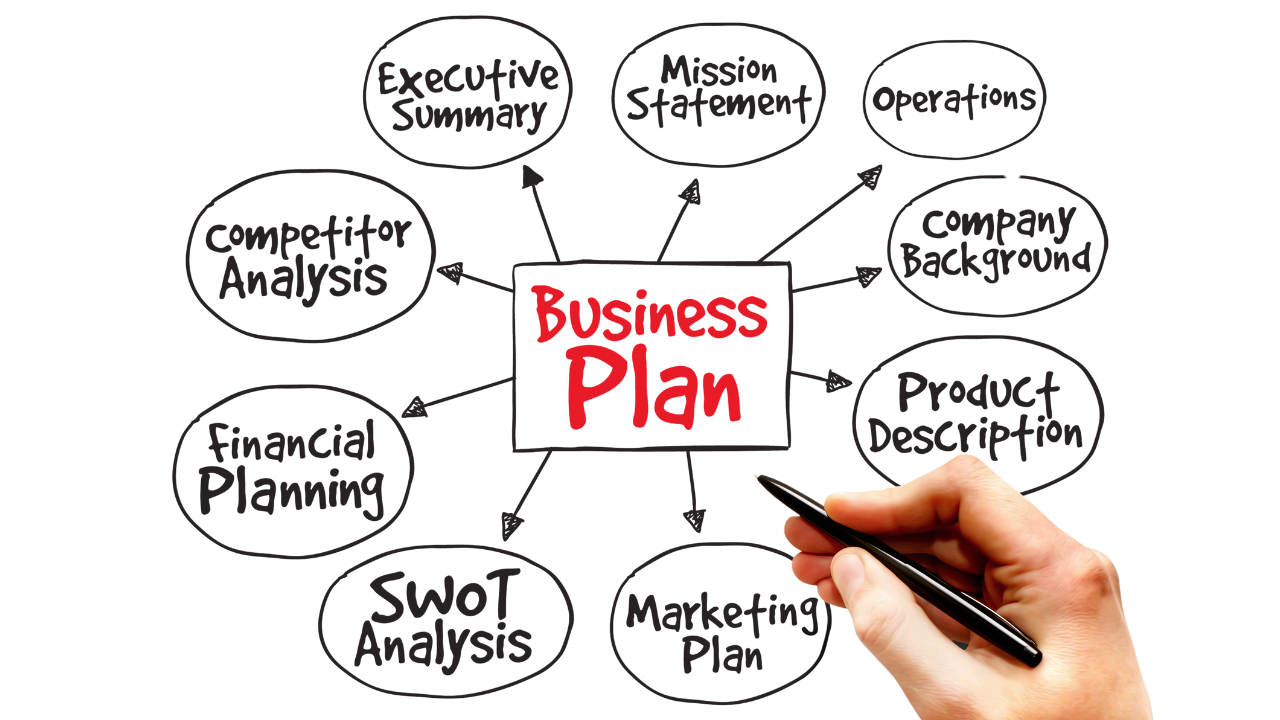Business Planning
Essential Components of a Business Plan
- Executive Summary: A concise overview of your entire business plan, capturing the essence of your company, its offerings, target market, and competitive edge. Think of it as a captivating elevator pitch for investors or potential partners.
- Company Description: Introduce your business, detailing its legal structure (sole proprietorship, partnership, corporation, etc.), mission statement (your purpose and core values), and a brief history (if applicable). Highlight any unique selling propositions that differentiate you from competitors.
- Products & Services: Describe the products or services you offer, emphasizing their benefits and features. Explain how they solve customer problems and address unmet needs in the market.
- Market Analysis: Analyze the industry you operate in, identify your target market (who your ideal customers are), describe your competitors (both direct and indirect), and explain the market size and growth potential.
- Marketing & Sales Strategy: Outline your plan for reaching your target market and acquiring customers. Detail your marketing channels (social media, advertising, public relations), sales strategy (direct sales, online sales, partnerships), and pricing strategy.
- Management Team: Introduce your key personnel, highlighting their experience, skills, and qualifications. Investors place high value on a strong and experienced team capable of leading the company towards success.
- Operations Plan: Describe the day-to-day operations of your business. This includes your production or service delivery process, human resource management approach, technology infrastructure needs, and any legal or regulatory requirements relevant to your industry.
- Financial Projections: Present your financial forecasts, including your projected income statement, cash flow statement, and balance sheet. These projections should demonstrate the financial viability of your business and your ability to generate profits.

Developing a Compelling Business Plan
- Focus on Clarity and Concision: Clearly articulate your vision and objectives while maintaining a succinct and engaging writing style.
- Conduct Thorough Research: Back your claims with reliable market data, competitor analysis, and financial projections.
- Tailor Your Plan to Your Audience: Craft the plan according to your audience's needs. For investors, focus on financial viability and growth potential. For lenders, emphasize your ability to repay loans.
- Highlight Your Competitive Advantage: Clearly define what sets you apart from the competition and how your business will capture market share.
- Demonstrate Passion and Expertise: Infuse your plan with enthusiasm and knowledge about your industry and target market.
Benefits of a Business Plan
- Clarity and Focus: The planning process forces you to refine your business model, identify potential challenges, and develop clear strategies for success.
- Securing Funding: A well-constructed business plan is essential for attracting investors, securing loans, and obtaining grants. It serves as a persuasive document that showcases the viability and potential of your venture.
- Communication Tool: The business plan serves as a communication tool for internal stakeholders (employees) and external partners (suppliers, vendors). It fosters alignment and ensures everyone is on the same page.
- Performance Benchmark: As your business progresses, the original plan becomes a benchmark against which you can measure your progress and identify areas for improvement.
Business Plan Software & Resources
Suggested Experts Of Business Planning
Founder of For Posterity
About
Helping Businesses Grow with Expert Business Consulting Marketing Strategies | Branding & Identity | Social Media Growth
Founder of Inzuzo Analytics
About
I am a Chartered Accountant with extensive experience in financial management, business analytics, decision support, sales planning, and partner management. My aim is to help small and medium-sized businesses grow and reach their full potential. Through years of engagement in Finance and Business partnering with various enterprises, I understand what drives the profitability of small businesses and how to support entrepreneurs in the decision-making process by providing actionable insights.
Group Executive Chairman of GBSH Consult Group
About
I am peer ranked, reviewed and widely recognised as a successful business leader and strategic thinker, with extensive experience in various industries and sectors globally. My track record includes overseeing successful initiatives in both the private and public sectors, focusing on legal and business strategy. As an angel investor, I have achieved remarkable results, boasting a 69.5% IRR from 9 out of 15 investments. I actively mentor aspiring entrepreneurs to help them realise their goals.
Owner Vanguard Business Consulting
About
I have worked with SMEs and Entrepreneurs for the past 15 years in terms of funding, finance readiness, investing, and operations. Having operated on both sides (running a small business as well as financing and assisting small business) I am well-suited to guiding small businesses in starting a business, growing a business, financing a business, and optimising a business. My role is to simplify the complex world of finance for the small business owner so that they can focus.
Founder
About
Victor is an Executive Consultant and Success Coach with a Master’s degree in Marketing from the International Institute of Marketing. As a certified NQF8 Marketer, he leverages his academic expertise and extensive experience to help individuals and businesses unlock their potential. Victor specializes in developing equity growth strategies and solving complex enterprise challenges with his team’s support.






